Despite the potential for unfriendly animal encounters in the bush whilst surveying, I survived unscathed. My snake paranoia, driven by tall-tales from everybody at work, was fortunately unfounded. The local villagers living in the area have killed and eaten anything larger than a mouse, and besides a plethora of beautiful and exotic bird species I saw no animals during my week of surveying. But my week was far from boring…
The day-to-day office work had gotten a bit monotonous, but my last week completely smashed that monotony. Along with Gilly, the wife of a displaced Zimbabwe farmer working at the mine and friend of the CEO’s family, we drove over 2 hours from the ‘civilization’ (hardly) of our nearby town Solwezi into a very basic preliminary bush camp directed by two young Zambians named Dominic and Amos. Dom is a former conservation officer and national park guide full of hilarious stories of wild animal encounters, while Amos is the nephew of the local Chief Kapijimpanga and acts as a liaison with the local villagers and fishermen. They both successfully direct a small team of local villagers to clear roads, construct small buildings, and prepare the area for a future construction camp. The local villagers happily receive $2.50 per day – and I’m told this is only slightly less than the monthly salary for similar workers in Zimbabwe. This parcel of land, 22000 hectares, was donated by the elderly chief to the CEO in order to develop what will likely become a game reserve. The chief wants something to help employ the local people. This land has never been owned before, and judging by the inaccessibility of certain parts of it, it is likely we were the first white people ever to see much of it.
I learned an amazing amount during this week. The first thing, learned on the initial drive to the camp, was that the movie scenes of young children from roadside villages excitedly waving and chasing after cars are true. I learned that on Sundays you’ll find very smartly dressed, humble elderly men bicycling to church. And on Sunday night, while driving through the local village we stopped to pick up some of the workers for Monday morning. I found everyone acting goofy — pawing the vehicle, shaking our hands limply, muttering in broken English or their local Kaonde, calling out to Dom and Amos, peering into the car by pressing their faces to the windows. Every single person was completely intoxicated! They were drunk off their locally brewed beers (katchasu) and liquors (chibuku). This is what happens every Sunday, and most Saturday afternoons. But by sunrise the next morning, a dozen guys had walked and bicycled 15km to our camp to ask for work, seeing our Landcruiser the day before and assuming we were the big bosses.
The backcountry in Canada is typically devoid of people, where you go to be alone with nature. In Zambia the local people really add an interesting spice to the backcountry. As we drove, hiked, bushwhacked, forded rivers, motor-boated, paddled in dugout canoes, and even rode dirt-bikes through the virgin woodlands we encountered evidence of human habitation. An abandoned grass-roofed hut appears in the forest. A tiny footpath. Small snares to catch ground-dwelling animals. A random forest clearing, full of sorghum or maize. Upraised rows of soil where a small farm once existed, now hidden by natural vegetation. Or more obvious signs like finding a group lying about in their family-sized villages chowing down on kapenta (dried fish), wild hot chilly peppers, and nshima (maize-meal dough). Fishermen scrambling to maneouver their small dug-out canoes to the shore to avoid being swamped by our motorboat wake. (As an aside to all my canoeist friends, I was totally shocked to see the local fishermen haven’t learned to J-stroke. They’re switching sides every few strokes like amateurs). I found the natural setting to be enriched by the presence of the peaceful local Zambians.
One of the fondest memories of my trip was from one very peaceful night at the campfire. As the temperature dropped towards single-digits, everyone else in the camp went to bed and I was left alone, snuggling up to a personal-sized campfire of hot embers that never once blew smoke in my face. The air was completely still, and occasional raucous laughter drifted down the open marshland from local villagers miles away. With zero light pollution, the sky overhead was foreign to me but bursting with stars and constellations – like Scorpius, and the Southern Cross. The mosquitoes, which were laughable by Canadian standards, had all gone to sleep. The tranquility of the scene was only surpassed by peaceful nights in Algonquin Park, where the beautiful and unmistakable loon call echoes down the lake.
Check out my flickr photos by clicking the thumbnail above. You’ll find some mini-stories with the photos.
Yours Very Sincerely and Long-Windedly,
-Mike

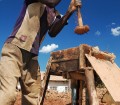
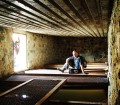

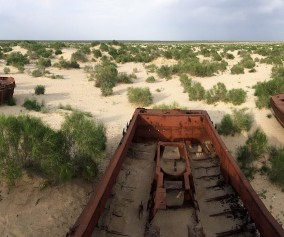
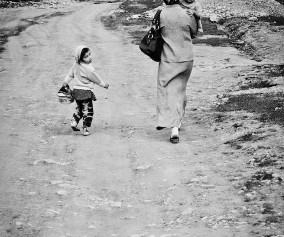
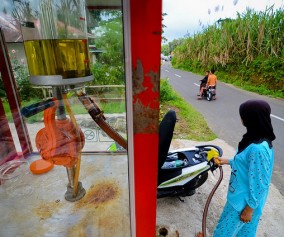
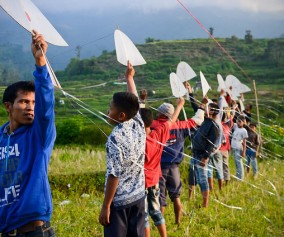
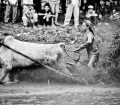
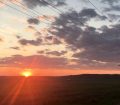

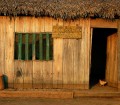
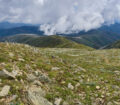




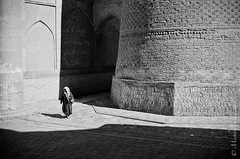
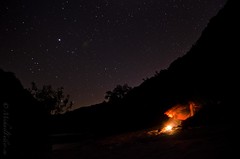

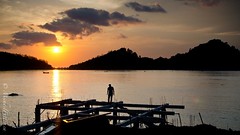
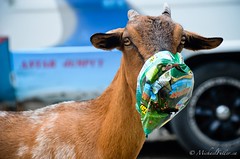
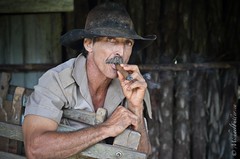

Mike,
It sounds like you are experiencing peace.
Your images of children running and waving after your car make me smile bigger than you know.
Thank you for your updates, I’m glad you survived your time out in the African bush.
Love E.
How did your time in the bush go!?